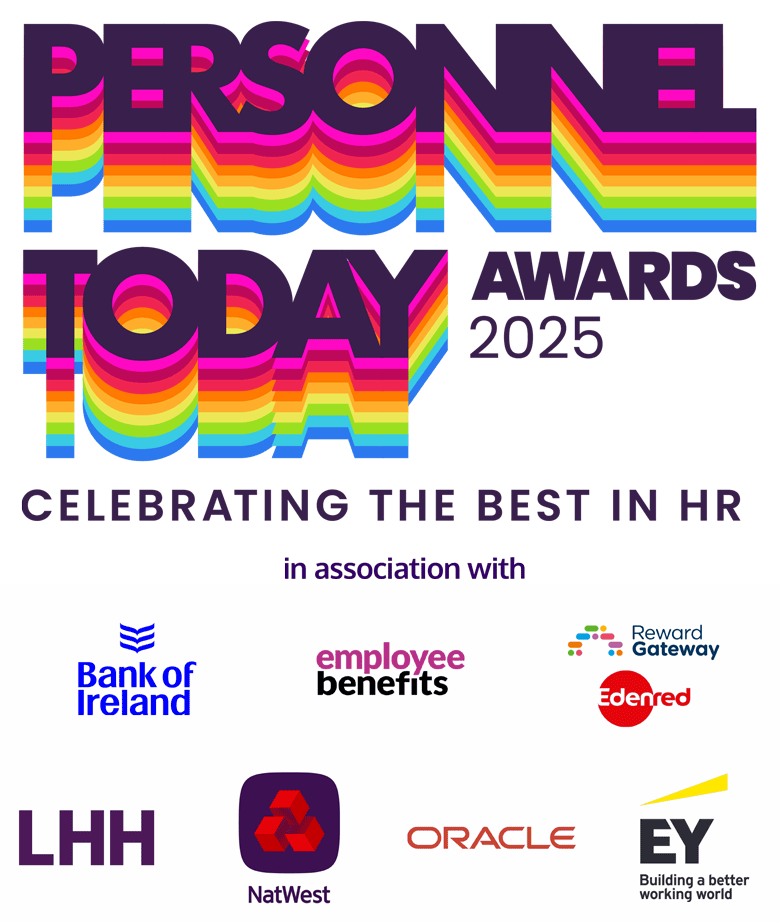The huge efforts made to shift cultures, revitalise particular functions and improve performance at each of the finalists’ entries in the Personnel Today Awards’ change management category impressed the judges, for their scope, ambition and focus on impact. We look at the shortlist for 2025…
AG Barr
AG Barr, the company behind brands such as Irn-Bru and Rubicon, faced a pivotal moment in 2024 when a new chief executive identified untapped potential and a cultural shift needed to drive growth. Despite a strong portfolio, a cautious, risk-averse mindset was hindering commercial performance. A comprehensive change programme was launched to transform the organisation into a performance-driven, empowered and collaborative business, aligned with its ambitious “Dare to Double” target of doubling revenue within five years.
The people function played a central role, driving cultural transformation through leadership development, cross-functional collaboration and empowerment initiatives. All employees participated in performance workshops to embed new ways of working, while leadership programmes promoted coaching and delegation. Reference groups of 50 employees ensured initiatives reflected workforce needs, and restructuring integrated brands including Funkin, MOMA and Boost, delivering savings while maintaining engagement.
The impact has been significant. Employee engagement scores have risen significantly above the industry average, with pride in the organisation 17% higher than peers and an employee net promoter score improving by four points. Nearly 90% of employees would recommend AG Barr as a workplace. This transformation has created the foundations for sustainable growth, embedding a culture of accountability, continuous improvement and innovation.
Lifeways
Lifeways, a provider of supported living, residential care and mental health services, faced longstanding challenges because of underinvestment in people development and organisational capability. The complexity of the social care sector, with tight funding and narrow margins, had led to unclear accountabilities, weak governance, and limited strategic HR focus.
Following a financial restructure, Lifeways launched a major transformation programme aiming to become the employer and provider of choice by 2026. Central to this was a shift towards frontline service empowerment and corporate functions acting as enablers rather than barriers. A national leadership roadshow engaged over 550 managers, helping shape the development of target operating models (TOMs) across all functions to improve service delivery, clarify responsibilities and enhance capability.
A redefined HR business partnering model enabled more strategic, cross-functional collaboration. HR teams, in partnership with operations, mapped capabilities, reviewed structures, and introduced robust governance. Steering committees and vacancy approval processes ensured changes remained within budget and aligned to agreed principles.
The results have been substantial: agency use fell, retention rose, and the vacancy rate dropped to well below the sector average. Induction retention increased by 50% year on year, and leadership development drove a 20-point improvement in employee perceptions of leadership. Crucially, the transformation was delivered without disruption, formal complaints or union issues, supported by continuous improvement reviews to embed sustainable change.
Lloyds Banking Group
Lloyds Banking Group, employing 65,000 people and serving 28 million customers, identified significant challenges in its HR provision. Fragmented systems, unclear expectations, and inconsistent policies created inefficiencies, resulting in more than one million hours annually spent navigating multiple platforms and impacting engagement and customer service. To address this, the people & places team launched a group-wide transformation programme in late 2024 focused on simplifying HR access, strengthening performance culture, and clarifying behavioural standards.
A key initiative was the launch of Prosper, an AI-powered HR virtual assistant and knowledge base that centralised support into a single portal. It replaced complex systems with simplified content and direct access to live agents, reducing policy documents by 60% and rewriting 837 knowledge articles. Prosper is forecast to save every colleague 1% of their time and deflect up to 90% of HR queries.
To embed a high-performance culture, the organisation introduced clearer leadership expectations through a People Leader Goal Mandate, linked bonuses to key metrics, and implemented a four-pillar performance framework. By Q1 2025, 97% of colleagues had set SMART goals, up considerably, and 75% had personal development plans.
Behavioural standards were consolidated into a single personal behaviour policy with clear non-negotiables, supported by training and digital tools. Early results show improved understanding, increased manager confidence, and a decline in conduct cases, demonstrating positive cultural change across the organisation.
NatWest Group
NatWest Group identified widespread dissatisfaction with its legacy performance management model, with over 20,000 colleague comments describing it as compliance-driven, demotivating, and ineffective. Performance reviews consumed more than 1.3 million hours annually, with administrative work outweighing meaningful coaching. This feedback prompted a fundamental rethink, aiming to transform performance from a transactional process into a shared cultural capability built on trust, clarity, and feedback.
The resulting programme, Beyond, was co-created with colleagues and delivered internally by cross-functional teams. Using a chapter-based approach, it introduced dynamic goal setting, regular meaningful conversations, clear performance standards, and fair, evidence-led pay decisions. Over 4,100 colleagues engaged in prototyping tools, journeys, and messaging through human-centred design, ensuring the model reflected real workplace needs. Behavioural science shaped learning, which combined digital modules, live sessions, and AI-driven role-play, all underpinned by the Six Conditions of High Performance.
Within 12 months, Beyond reached more than 65,000 colleagues, with over 95% completing core learning. It freed an estimated 460,000 hours for more valuable conversations, and colleague net promoter scores rose significantly. Engagement with digital resources exceeded 300,000 views, while managers reported increased confidence in leading discussions on performance and pay. Beyond has delivered a sustained cultural shift, fostering ownership, empowerment, and meaningful dialogue across the organisation.
NHS Property Services
NHS Property Services, a strategic estates provider supporting NHS organisations, identified significant challenges in its people management approach in 2023. Managers were overwhelmed by high volumes of colleague relations (CR) cases, lacked timely specialist advice, and relied on a slow, email-based HR platform, leading to an average case duration of 90 days. Limited access to expertise affected morale and trust, external legal fees were rising, and industrial relations were inconsistent. High sickness absence rates and low colleague engagement, reflected in a Peakon score of 7.6 with 63% participation, underscored the need for change.
In response, NHSPS introduced a dedicated Colleague Relations Team and launched CR Direct, providing expert advice, case management, and strategic support. High-risk cases were handled by named case managers, while CR specialists focused on strategy, culture, and policy. Simplified people policies, a new colleague handbook, and eLearning modules were implemented, alongside wellbeing initiatives, absence management surgeries, and the launch of a Colleague Forum to enhance engagement.
These changes reduced average case duration, long-term and short-term sickness absence, and lowered legal costs per colleague by almost half. Engagement rose, with a Peakon score of 8.4, at 71% participation, and an impressive employee net promoter score. The transformation delivered considerable savings, improved management capability, and fostered a culture where colleagues feel respected, supported, and heard.
Book your table for the Personnel Today Awards 2025
Sign up to our weekly round-up of HR news and guidance
Receive the Personnel Today Direct e-newsletter every Wednesday


